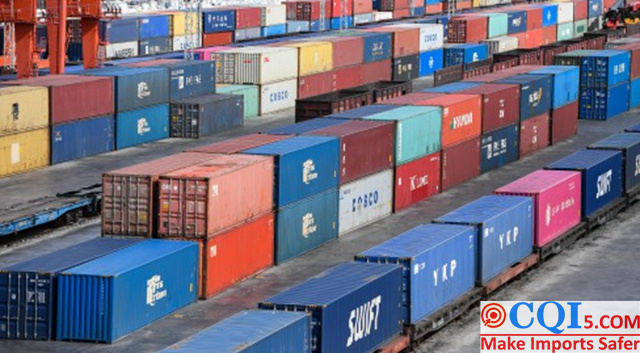Supply chain crisis of multinational companies, how to solve it?
According to a recent report by Barclays, its chief India economist Rahul Bajoria noted that cross-sector surveys and company filings indicate that supply challenges could extend into the first quarter of 2022 and beyond. Supply bottlenecks are already estimated to have cumulatively reduced global growth by 0.5% in 2021. In addition, supply-side pressures have translated into more general upward inflationary momentum. So, how multinational companies deal with supply chain crises is highly regarded.
The ASEAN and CJK Macroeconomic Research Office said in an email response to Business First that the outbreak has highlighted the need for global supply chains that are not only more efficient and cost effective, but also more resilient. Multinational companies are now looking at a variety of resilience strategies, such as dual sourcing and near-shore services, to minimise the impact of any such shocks in the future.
Hu Yan, Vice President, Head of Operations and Supply Chain of Swiss company Sika (China) Ltd, said in an interview with China Business News during the 5th Sino-Swiss Business Awards this year that as a multinational company, the sharing of resources from the global supply platform it has plays an obvious role in helping.
Supply challenges to continue through 2022
In his latest study, Oxford Economics economist Tim Hunter notes that according to his survey of economies accounting for 90% of the world’s gross domestic product (GDP), all respondents believe that supply chain problems will hit growth, with some economies dependent on the automotive sector being the most severely affected.
“Shortages have plagued global industry and consumers for much of the year as supply has struggled to keep pace with the rapid recovery in demand, which has been largely commodity-centric, with many service sectors still suffering from epidemic-related constraints.” Economies such as Germany and Japan have been particularly hard hit, Tim Hunter said, as their key automotive sectors have been hit by shortages of semiconductors.
Rahul Bajoria also said that from an industry perspective, it was clear that automotive production was being hampered by ongoing chip shortages. As we enter the second half of the year, while early idiosyncrasies (weather-related power outages, earthquakes, etc.) have eased, new challenges have emerged to compound supply bottlenecks, such as port congestion and truck shortages, particularly in the US. “The highly intertwined nature of global supply chains means that delays or shortages of even the smallest components can create potential pressure points in the supply chain.” He claimed.
Rahul Bajoria said, “With demand remaining strong, labour market tightness and widespread price pressures, the gap between output and input costs is unlikely to remain for long and will need to be narrowed by easing bottlenecks or raising prices.” He added that normalising demand and improving supply should ease some price pressures in the second half of 2022, when a high base from the same period last year should also help ease inflation.
For his part, Tim Hunter said supply disruptions were expected to ease steadily during 2022, but the risks could not be ignored. “The temporary supply setbacks caused by the embargo will dissipate as companies rebuild their inventories. Supply disruptions will ease by the second half of 2022 as the economy continues to reopen and demand shifts from goods to services. However, further supply chain disruptions will remain a key downside risk.” He said.
Tim Hunter also believes that supply chain risk is also a key concern for businesses. The agency’s October Global Risk Survey found that businesses have become more pessimistic about the economic outlook over the past month, with ongoing supply chain disruptions seen as the biggest short-term risk to the global economy.
How multinational companies are dealing with to supply chain crises
To address the supply crisis, some multinational companies have decided to adopt a permanent solution by expanding into key sectors where supply is constrained. According to US media reports, Ford Motor Company and General Motors are looking to enter the semiconductor business. on 18 November, Ford entered into a strategic agreement with US semiconductor manufacturer GlobalFoundries to develop chips that could be produced locally in the US. GM, for its part, said it was establishing links with major companies in the semiconductor sector, such as Qualcomm, and had reached an agreement to jointly develop and produce computer chips.
Some companies have also opted for a more ‘flexible’ solution. Hu Yan told Business First that the disruption and impact of the global epidemic on the supply chain, coupled with force majeure caused by extreme weather and natural disasters, disruption to global shipments and the consequent high freight costs, made the company suffer unprecedented supply chain challenges during the epidemic.
“For example, international logistics freight rates are rising very quickly, but this is not particularly painful, what is particularly painful is that on-time delivery of logistics is becoming extremely difficult.” Hu Yan says, “International transport has become less efficient and we have had to make adjustments. Whereas in the past it might have been expected to take four weeks for a shipment from abroad to China, now you can’t just do four weeks of preparation. Even if we put in a long time, we have to be proactive and active in linking up with foreign countries to get forecast figures and pre-layout. With a consensus on the objective situation, if there are still delays in shipments, we need to go relatively quickly to link up with domestic, or transfer cargo from abroad.”

How China can respond to the crisis of multinational companies
Hu Yan added: “But this brings another challenge, which is whether there is readiness to activate temporary second and third supply resources quickly. This should be done in normal times, not at the time of a crisis. Flexible supply chain building is not something that can be done overnight or immediately after a black swan event. It is also good that we were gradually improving the resistance of our supply chain itself two or three years ago.”
Hu Yan says that as a multinational company, it is important to share the resources of the global supply platform that Sika has. “We have resource platforms around the world that enable us to integrate all the logistics information and raw material information on hand globally, so that we can quickly communicate and share resources through the platform and gather resources and establish communication quickly when there are supply bottlenecks and challenges.”
In addition to this, Hu Yan said that during the epidemic, thanks to the rapid resumption of work and production in China, Sika China also received more orders from abroad, helping to alleviate some of the pressure on sister companies. “Within the group, our export orders are also tending towards Asia Pacific, and outside of Asia Pacific, the Americas, Europe, the Middle East and even African countries, all of which have seen an increase in orders. Because we are all facing the same challenges in the midst of the epidemic, we can actually support each other on such a platform and help our sister companies to share some of the orders when we can and supply them, so as to relieve some of the pressure on them as well.” She said.
Disclaimer:
CQI5 article information from the Internet and contributions, the copyright of which belongs to the original author, and only represents the views of the original author. This website is only responsible for sorting out, typesetting and editing the articles, reproduced for the purpose of spreading more information, does not imply that it endorses its views or proves the truthfulness, completeness and accuracy of its content, and therefore does not assume any legal responsibility.
The information contained in this article is for reference only and is not intended as direct advice for decision-making.
If we inadvertently violate your copyright, please inform us, after verification, we will immediately correct or delete the content according to the requirements of the copyright holder, thank you! Contact, email: copyright@cqipro.com
This website has the final right to interpret this statement.
Welcome to reprint, Please be sure to keep information complete.





